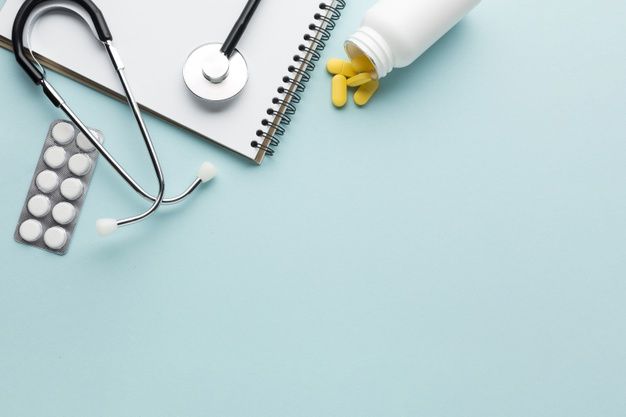
It’s cold, Paris at this time of year is melting away in humidity, 83 percent, and in temperature, just three degrees. Luckily, my usual coffee with milk and a piece of toast with butter and jam allow me to put the computer on the table to get closer to a story that once again takes us into the devastating world of death and the medical class.
In a newspaper, on September 22, 2001, many years ago, I found a small piece, you know, those short news items that appear in column form and that are used by newspaper editors to fill the page, which said the next:
«A study published in the latest edition of the British Medical Journal indicates that the latest generation antidepressant drugs that inhibit the reabsorption of serotonin in the brain increase the risk of suffering from gastrointestinal bleeding in elderly people. Research carried out in several Canadian hospitals has specifically detected that the possibility of suffering from this disorder increases by 10 percent.«.

Although the research was carried out in a Canadian hospital, the reality is that in these, just over twenty years, the intake of antidepressants in the world population has been and is being truly alarming. The large pharmaceutical industries, aided by family doctors, the media and psychiatrists, have implanted the idea that any emotional state that upsets us can be declared a “mental illness” and medicated with some joy with new generation antidepressants.
In 2010 I myself was at the doctor and the doctor who treated me, when I told him about my state of mind, a certain apathy, because I had just gone through a deep grieving process in which I was still immersed, without considering any other type of treatment, He prescribed me antidepressants, which of course I didn’t take. However, every time I visit my doctor to have any document done, related to some test, I see with astonishment how in my clinical history I am listed as a person who suffers from depression. If I had decided to take medication at that time, today I would be a chronic patient stuffed with pills for my “depressive” treatment.
In November 2022, a report was published on a geriatric portal whose headline was devastating: Stroke cases will increase by 34% in the next decade in Europe. The Spanish Society of Neurology (SEN) pointed out that 12.2 million people in the world will suffer a stroke in 2022 and 6.5 million will die. It also provided the information that more than 110 million people who had suffered a stroke were in a situation of disability.
Among the possible causes of suffering a stroke are established, according to this association and others consulted, high blood pressure, smoking, physical inactivity, an unhealthy diet, obesity, excessive alcohol consumption, atrial fibrillation, high blood lipid levels, diabetes mellitus, genetics, stress, etc. Apparently living, in general, causes a stroke. Once again, medicine puts a huge deck on the table so that, with any card that comes your way, you have no choice but to take medication. And especially for stress or tension, anxiolytics and antidepressants.
In my modest research on the relationship between old age and stroke, I came across some truly terrifying articles that put all the blame, as justice would say, for the ordeal on the elderly person (I myself am already an elderly person). In an article published on November 28 of this same year (2023) and titled: Depression, a public health problem among the elderly population. Among the terrifying symptoms that can diagnose this chronic disease you can read the following:
«The Depression has become a public health problem which deserves special attention for its effects on cognitive decline of older people. Its symptoms can vary and affect both the physical and emotional well-being of those who suffer from it.
Some of the common symptoms They are loss of energy or constant fatigue, boredom, sadness or apathy, low self-esteem, nervousness, restlessness, delusions, unjustified fear, feeling of uselessness, mild cognitive alterations, presence of unexplained pain or chronic pain and some behavioral disorders.«.
Social factors that in no case should be treated with antidepressants. Qualifying these problems as a case of public health is a shame that is being imposed to permanently medicate people who should only be helped to feel useful again. To affirm that these people are “a burden” is to deprive them of their fundamental rights, especially when they end up in nursing homes not focused on their social and emotional reintegration, but only as “livestock” to be fed and filled with medications until they die and stop working. give the fuss.
Overmedication is a risk factor, especially in people who already have gray hair. Studies on what causes a certain disease, carried out in any university in the world or “accredited” organization, do not necessarily, never, analyze who causes it. That is why whenever we are prescribed anything, we should not get tired of asking at all times, even to internet search engines so that they can show us and clarify every last molecule of doubt we have. And if not, I recommend spending a few dollars (euros) to buy the odd book critical of the medical system. I always tend to recommend, considering its author and his training as a doctor, one of these two books: How to survive in an overmedicated world either Drugs that kill and organized crime.
The global health system wants us loaded with medications. The medicine should only be used very occasionally. If we need to be constantly at the doctor it means something is not working, let’s read the pills we consume, the side effects they cause and perhaps it turns out that we are falling into a self-destructive spiral guided by one-eyed people leading the blind.
But as I always say, while I finished my cold coffee, my articles, my observations, have nothing to do with the honest medical class that tries to bring together positions so that our health is increasingly better and more stable. And likewise it is also convenient for us to realize the life we lead. It is healthy? If it is not, let’s change.
Bibliography:
Stroke cases will increase by 34% in the next decade in Europe (geriatricarea.com)
Depression, a public health problem among the elderly population (geriatricarea.com)
La Razón Newspaper, Saturday, 9/22/2021, page. 35 (Spain)
Originally published at LaDamadeElche.com









